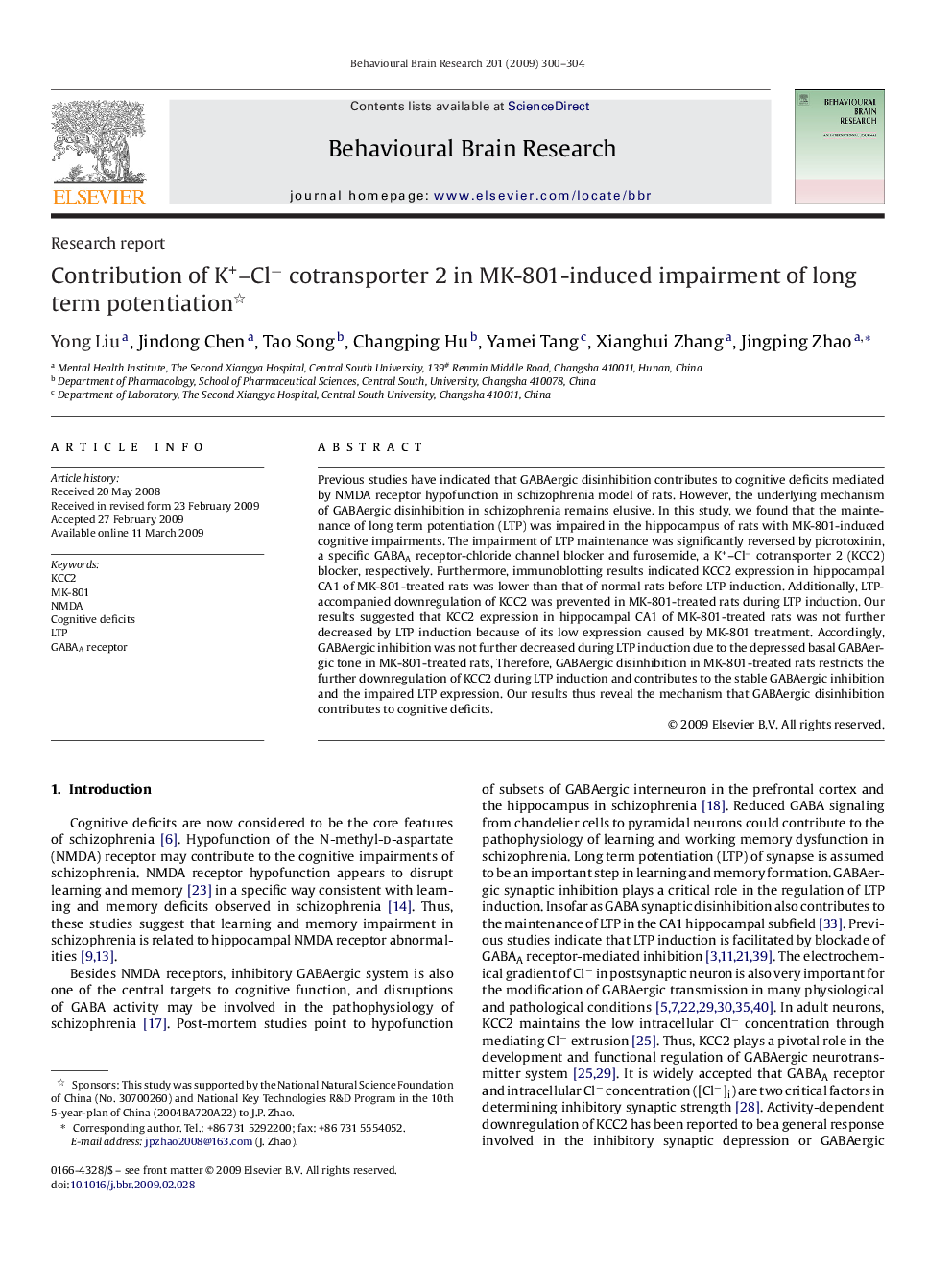| Article ID | Journal | Published Year | Pages | File Type |
|---|---|---|---|---|
| 4314722 | Behavioural Brain Research | 2009 | 5 Pages |
Previous studies have indicated that GABAergic disinhibition contributes to cognitive deficits mediated by NMDA receptor hypofunction in schizophrenia model of rats. However, the underlying mechanism of GABAergic disinhibition in schizophrenia remains elusive. In this study, we found that the maintenance of long term potentiation (LTP) was impaired in the hippocampus of rats with MK-801-induced cognitive impairments. The impairment of LTP maintenance was significantly reversed by picrotoxinin, a specific GABAA receptor-chloride channel blocker and furosemide, a K+–Cl− cotransporter 2 (KCC2) blocker, respectively. Furthermore, immunoblotting results indicated KCC2 expression in hippocampal CA1 of MK-801-treated rats was lower than that of normal rats before LTP induction. Additionally, LTP-accompanied downregulation of KCC2 was prevented in MK-801-treated rats during LTP induction. Our results suggested that KCC2 expression in hippocampal CA1 of MK-801-treated rats was not further decreased by LTP induction because of its low expression caused by MK-801 treatment. Accordingly, GABAergic inhibition was not further decreased during LTP induction due to the depressed basal GABAergic tone in MK-801-treated rats, Therefore, GABAergic disinhibition in MK-801-treated rats restricts the further downregulation of KCC2 during LTP induction and contributes to the stable GABAergic inhibition and the impaired LTP expression. Our results thus reveal the mechanism that GABAergic disinhibition contributes to cognitive deficits.
